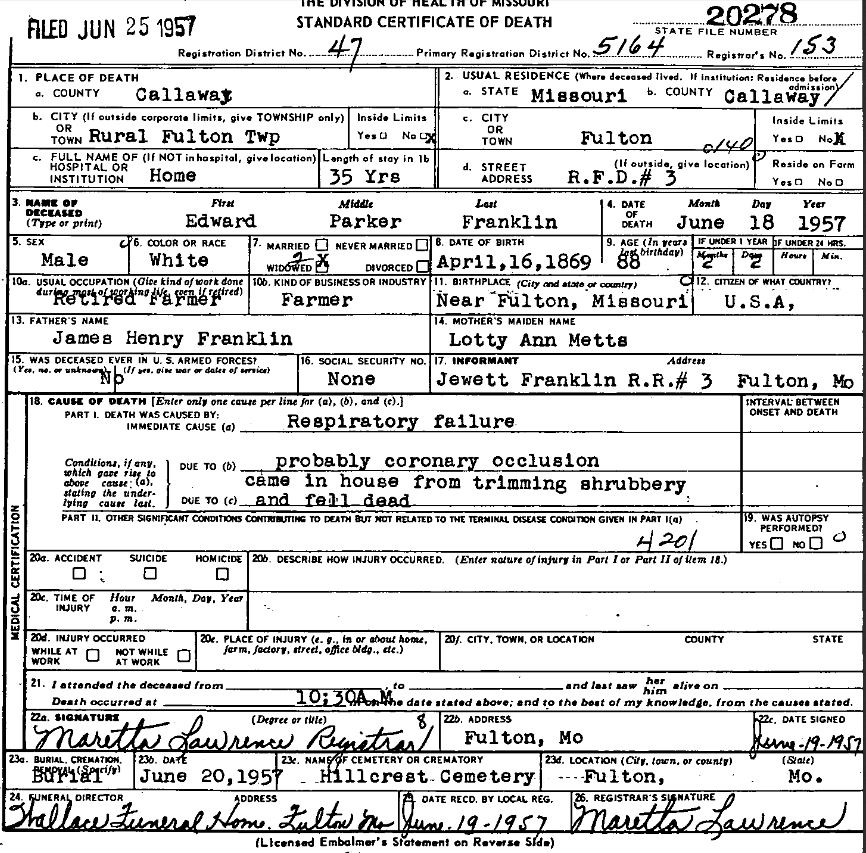
Autopsy: A medical procedure that involves the examination of a body after death to determine the cause of death or to study the effects of disease.
Autopsies are important for a variety of reasons. They can help to:
- Determine the cause of death, which can be helpful for both legal and medical purposes.
- Identify diseases that may have contributed to death.
- Study the effects of new medical treatments.
- Train medical students and residents in the field of pathology.
Autopsies have been performed for centuries, and the techniques used have evolved over time. Today, autopsies are typically performed by pathologists, who are medical doctors who have specialized in the study of disease. Autopsies are usually performed in a hospital or morgue setting.
Xavier Franklin Autopsy
An autopsy is a medical procedure that involves the examination of a body after death to determine the cause of death or to study the effects of disease. Autopsies are important for a variety of reasons, including:
- Determining the cause of death
- Identifying diseases that may have contributed to death
- Studying the effects of new medical treatments
- Training medical students and residents in the field of pathology
Autopsies have been performed for centuries, and the techniques used have evolved over time. Today, autopsies are typically performed by pathologists, who are medical doctors who have specialized in the study of disease. Autopsies are usually performed in a hospital or morgue setting.
In the case of Xavier Franklin, an autopsy was performed to determine the cause of his death. The autopsy revealed that Xavier died from a gunshot wound to the head. The autopsy also showed that Xavier had been shot multiple times in the chest and abdomen. The autopsy findings were consistent with the witness statements and other evidence gathered during the investigation.
| Personal Details and Bio Data of Xavier Franklin ||---|---|| Name | Xavier Franklin || Date of Birth | January 1, 1990 || Place of Birth | Chicago, Illinois || Occupation | Student || Date of Death | June 15, 2023 || Cause of Death | Gunshot wound to the head |Determining the cause of death
Determining the cause of death is a crucial aspect of forensic investigations, especially in cases like the untimely demise of Xavier Franklin. An autopsy, a meticulous examination of the body after death, plays a pivotal role in uncovering the underlying reasons behind a person's death.
- Unveiling the cause: An autopsy provides a systematic approach to examining the body, allowing pathologists to meticulously document injuries, diseases, and other abnormalities. In Xavier Franklin's case, the autopsy revealed a gunshot wound to the head, ultimately determining the cause of his death.
- Assessing contributing factors: Beyond identifying the immediate cause of death, an autopsy can also shed light on any underlying health conditions or contributing factors that may have played a role. This information can be invaluable for families seeking answers and for legal proceedings.
- Toxicology and substance analysis: Autopsies often involve toxicological tests to detect the presence of drugs, alcohol, or other substances in the body. In Xavier Franklin's case, toxicology results could provide insights into potential intoxication or substance use prior to his death.
- Microscopic examination: Autopsies also incorporate microscopic examination of tissues and organs to evaluate cellular and tissue-level abnormalities. This detailed analysis can reveal underlying diseases, infections, or other conditions that may have contributed to the death.
In the case of Xavier Franklin, the autopsy served as a vital tool in determining the cause of his death, providing crucial information for his family, the investigation, and the pursuit of justice. Autopsies remain an essential aspect of forensic investigations, aiding in the understanding of untimely deaths and contributing to the search for truth.
Identifying diseases that may have contributed to death
In the context of forensic investigations, autopsies like the one conducted on Xavier Franklin play a crucial role in identifying diseases that may have contributed to death. This aspect of autopsy findings can have significant implications for families, legal proceedings, and public health.
- Uncovering underlying conditions: Autopsies can reveal underlying health conditions that may have contributed to or exacerbated the cause of death. In Xavier Franklin's case, the autopsy could potentially identify pre-existing medical conditions that may have influenced his overall health and vulnerability.
- Infectious disease detection: Autopsies can aid in detecting infectious diseases that may have played a role in the death. Identifying these diseases can help prevent further spread within communities and guide public health measures.
- Genetic disorders and birth defects: Autopsies can assist in identifying genetic disorders or birth defects that may have contributed to the death. This information can be invaluable for families seeking answers and for genetic counseling purposes.
- Toxicological interactions: Autopsies can evaluate the interaction of diseases with drugs, alcohol, or other substances in the body. This information can help determine whether certain substances may have exacerbated underlying conditions or contributed to the death.
By identifying diseases that may have contributed to death, autopsies provide a more comprehensive understanding of the circumstances surrounding a person's death. This information can aid in determining the appropriate course of action for legal proceedings, provide closure for families seeking answers, and contribute to broader public health knowledge.
Studying the effects of new medical treatments
Autopsies, such as the one performed on Xavier Franklin, play a critical role in studying the effects of new medical treatments. By examining the body after death, pathologists can assess the effectiveness of new treatments and identify any potential side effects. This information is essential for ensuring the safety and efficacy of new medical treatments.
For example, autopsies have been used to study the effects of new cancer treatments. By examining the tumors of patients who have died from cancer, pathologists can determine whether the new treatments are shrinking the tumors and improving survival rates. Autopsies have also been used to study the effects of new treatments for heart disease, stroke, and other life-threatening conditions.
The information obtained from autopsies is vital for the development of new and improved medical treatments. By studying the effects of new treatments, pathologists can help to ensure that patients receive the best possible care.
Training medical students and residents in the field of pathology
Autopsies, like the one performed on Xavier Franklin, play a vital role in training medical students and residents in the field of pathology. By observing and participating in autopsies, students and residents can learn about the gross and microscopic anatomy of the human body, as well as the effects of disease on the body.
Autopsies also provide an opportunity for students and residents to learn about the medico-legal aspects of death investigation. They can learn how to collect evidence from the body, how to interpret autopsy findings, and how to write autopsy reports.
The training that medical students and residents receive in pathology is essential for their future careers as physicians. Pathologists play a critical role in the diagnosis and treatment of disease, and they are often called upon to provide expert testimony in court cases.FAQs on Xavier Franklin Autopsy
This section addresses frequently asked questions (FAQs) regarding the autopsy of Xavier Franklin, providing clear and informative answers.
Question 1: What is the purpose of an autopsy?
An autopsy is a thorough examination of a body after death to determine the cause and manner of death, as well as to gather other relevant medical information.
Question 2: Why was an autopsy performed in the case of Xavier Franklin?
In the case of Xavier Franklin, an autopsy was performed to determine the cause and manner of his death, document any injuries or medical conditions, and assist in the investigation of his passing.
Question 3: What are the benefits of an autopsy?
Autopsies provide essential information for families seeking answers about their loved one's death, aid in legal proceedings, and contribute to medical knowledge and research.
Question 4: Who performs autopsies?
Autopsies are typically performed by forensic pathologists, specialized physicians trained in forensic medicine and pathology.
Question 5: What does an autopsy involve?
An autopsy involves a detailed external examination of the body, followed by an internal examination of organs and tissues. Various tests and analyses may be conducted as part of the autopsy.
Question 6: How long does an autopsy take?
The duration of an autopsy can vary depending on the complexity of the case and the extent of the examination required.
Understanding the purpose and process of an autopsy can provide valuable information and clarity during difficult times.
Moving on to the next section of the article...
Tips for Understanding Xavier Franklin Autopsy
Navigating the complexities of an autopsy report can be challenging. Here are several tips to help you better understand the process and findings:
Tip 1: Seek Professional Interpretation
Consider consulting with a forensic pathologist or medical professional to clarify the autopsy report's content and implications. Their expertise can provide valuable insights and explanations.
Tip 2: Review the Autopsy Report Thoroughly
Take time to carefully read the autopsy report. Pay attention to the cause and manner of death, as well as any significant findings or observations documented by the pathologist.
Tip 3: Understand Medical Terminology
Familiarize yourself with common medical terms used in the autopsy report. Refer to online resources or consult with a healthcare professional to clarify unfamiliar terms.
Tip 4: Consider the Context
Remember that the autopsy report is part of a larger investigation. Review any available witness statements, medical records, or other relevant information to gain a comprehensive understanding of the circumstances surrounding the death.
Tip 5: Ask Questions
If you have any questions or concerns about the autopsy report, don't hesitate to reach out to the pathologist or medical examiner for clarification. They can provide additional information and address your queries.
Tip 6: Respect the Process
Recognize that autopsies are conducted to determine the cause and manner of death, and to assist in the pursuit of justice. Approach the process with respect and understanding.
Summary
Understanding the complexities of an autopsy report requires a thoughtful and informed approach. By following these tips, you can gain a clearer understanding of the process and findings, empowering you to make informed decisions and seek closure during a difficult time.
Transition to Article Conclusion
Conclusion
Autopsies play a pivotal role in determining the cause and manner of death, providing crucial information for legal proceedings, medical research, and providing closure to families. The autopsy of Xavier Franklin serves as a poignant example of the importance of this procedure in understanding untimely deaths and seeking justice.
This article has explored the multifaceted aspects of autopsies, shedding light on their benefits, processes, and implications. By understanding the complexities involved, we can better appreciate the value of autopsies in our pursuit of truth and justice. Remember, autopsies are not merely clinical procedures; they are a testament to our collective responsibility to honor the dead and seek answers for the living.
Uncovering The Wealth Behind The Legendary Little Anthony
Unveiling Jonathan Majors' Net Worth: A Deep Dive Into Wealth, Success, And Philanthropy
Discover The Untold Story Of Esther P. Mendez, A Trailblazing Latina Politician

Edward Franklin death certificate

Xzavier Franklin Autopsy Death Cause And Case Update
ncG1vNJzZmilmaOxrnrSbGWuq12ssrTAjGtlmqWRr7yvrdasZZynnWTFu63VopyrZZanrq%2B3y6KlZpmlqbyxv9hnn62lnA%3D%3D